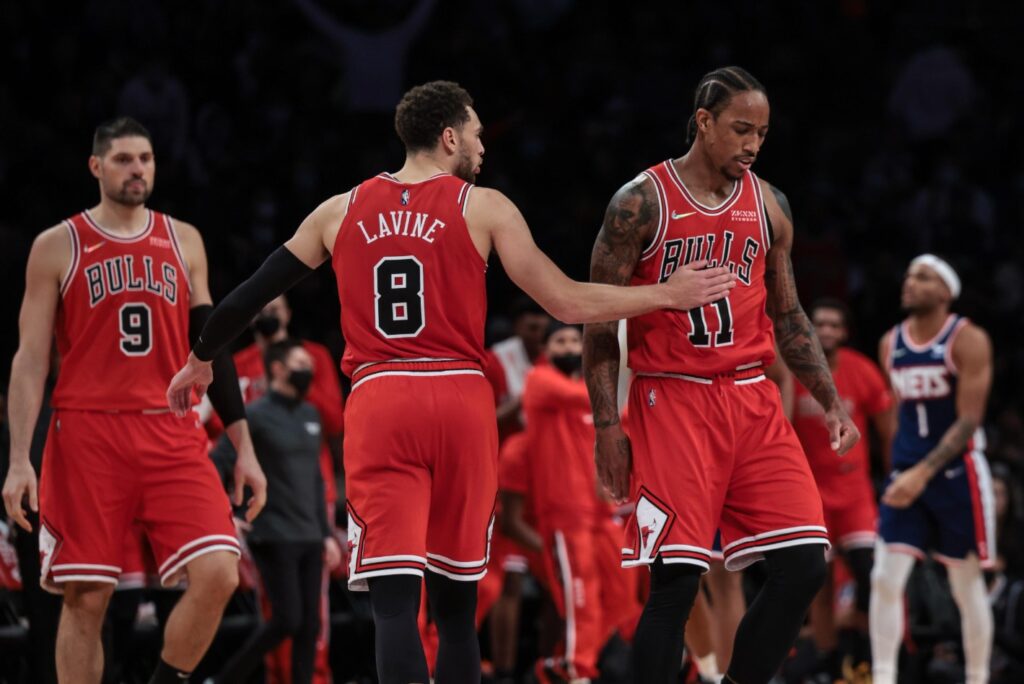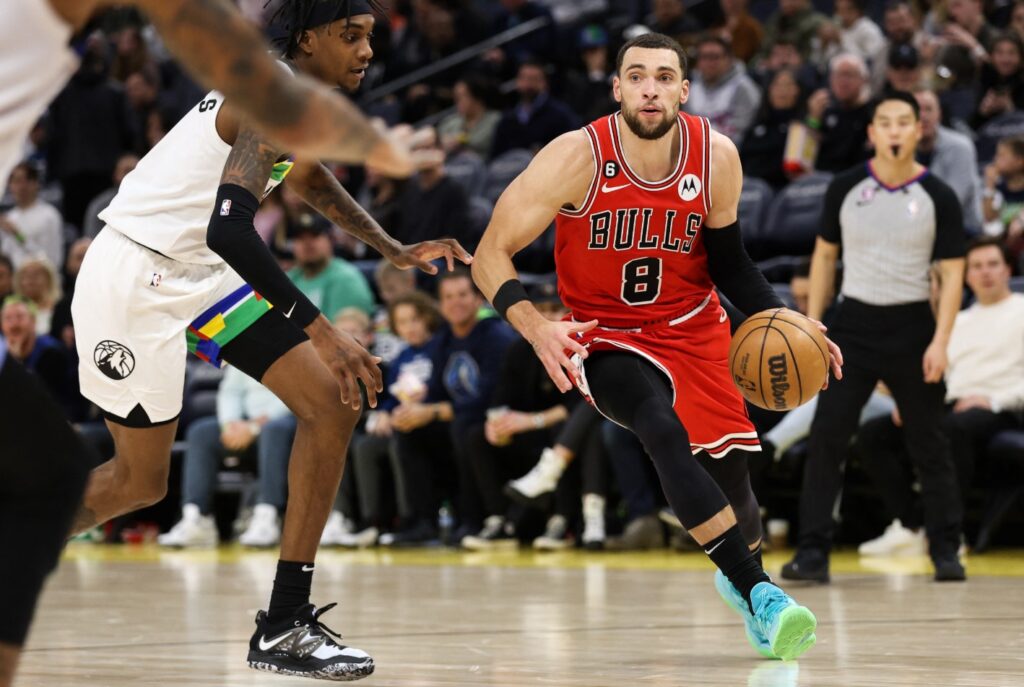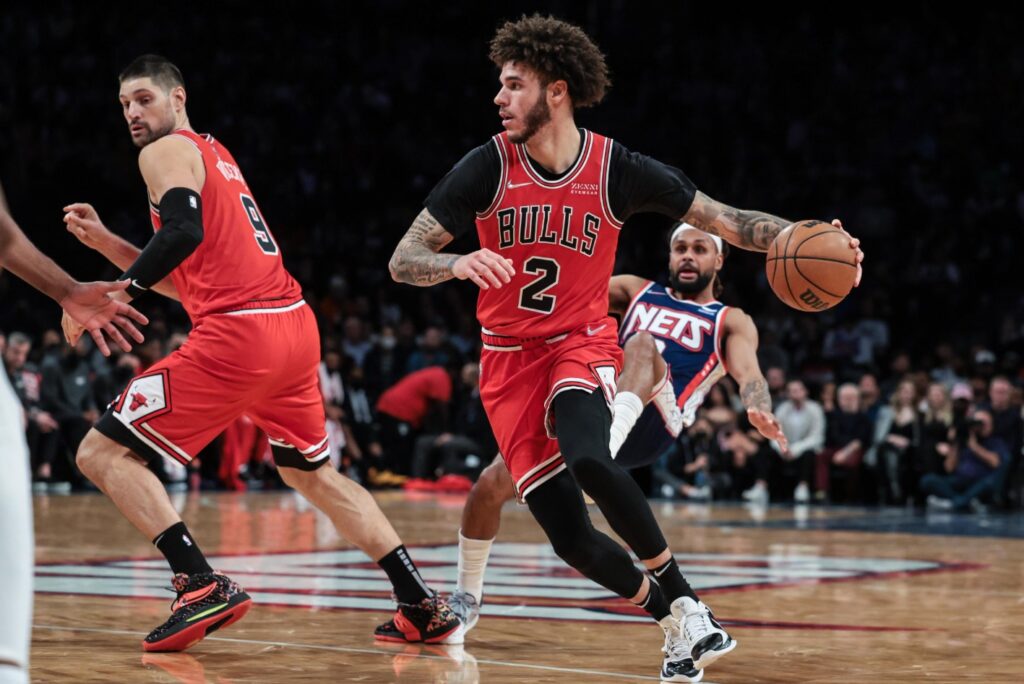A City in Mourning: Chicago Bulls Honor Ryne Sandberg with a Powerful Moment of Silence
On the night of July 28, 2025, inside the roaring walls of the United Center in downtown Chicago, a place where basketball passion normally erupts like wildfire, something unprecedented happened — the entire arena went quiet, as if time itself had paused to grieve the loss of a true sports titan.

Just minutes before tip-off in a crucial matchup between the Chicago Bulls and the Miami Heat, the entire crowd of over 20,000 fans, the coaching staff, the players, and the broadcasters stood in solemn silence to honor the life of Ryne Sandberg, the Hall of Fame second baseman and beloved icon of the Chicago Cubs, who had passed away just hours earlier at the age of 65.
Although the arena’s lights remained lit, and the hardwood court beneath the players’ feet gleamed as usual, the emotional weight in the air was so thick, it seemed to dim the entire city’s spirit — a living, breathing collective heartbreak felt from the rafters down to the bench.
The Bulls, clad in their traditional red and black, lined up side by side at half-court, their heads bowed, hands locked behind their backs or folded respectfully in front of them, while a massive photo of Ryne Sandberg in his Cubs uniform, with that familiar humble grin, filled the jumbotron above them.
The announcer’s voice cracked as he gently asked for a moment of silence, and for 60 unforgettable seconds, not a word was spoken, not a single cheer rang out, and even the ever-vibrant courtside media held their breath — the only sound was the faint hum of the stadium’s air conditioning and the distant echo of city traffic.
It was a gesture that transcended sports, as players from the NBA paused their own competitive drive to acknowledge a man whose life, legacy, and leadership had shaped generations of athletes not only in baseball but across all of Chicago’s rich athletic history.

Ryne Sandberg, who had been inducted into the Baseball Hall of Fame in 2005, was not merely known for his 10 All-Star selections, nine Gold Gloves, or his 1984 MVP season — he was revered for how he carried the spirit of Chicago on his back during one of the most loyal yet painful eras for Cubs fans.
Born in Spokane, Washington, but adopted as a son of Chicago the moment he stepped onto Wrigley Field in 1982, Sandberg became more than a player; he was a symbol of hope, discipline, and grace — someone who wore losses as humbly as he celebrated victories, inspiring even rival teams to respect him.
News of his death, confirmed early Monday morning by his family after a lengthy private battle with prostate cancer, sent shockwaves across the United States, sparking tributes from MLB franchises, former teammates, broadcasters, and even U.S. President Katherine Mitchell, who called Sandberg “a quiet giant who never sought the spotlight but earned every beam of it.”
But nowhere was the grief more deeply felt than in Chicago itself — a city that thrives on its sports dynasties, and a fanbase that considers its heroes not just players but family — and that’s why, even in a basketball arena, his absence rang louder than the buzzer that started the game.
DeMar DeRozan, the Bulls’ star forward and team leader, later revealed in a post-game interview that he had grown up watching Sandberg highlights with his father and that the team had requested the moment of silence after learning of the news during their pre-game warm-ups.
“We’re all competitors,” DeRozan said, his voice steady but his eyes red-rimmed. “But there are moments bigger than basketball, moments when you realize what legacy truly means — and Sandberg, man, he was legacy. Chicago didn’t just lose a player today — we lost a piece of our soul.”
In the crowd, numerous fans could be seen wearing vintage Cubs jerseys with Sandberg’s number 23 stitched on the back, some holding homemade signs that read “Thank You Ryno” or “Legends Never Die,” while others simply stood frozen, eyes brimming with emotion, hands clasped in silent gratitude.

Even longtime Bulls announcer Stacey King, who rarely loses his composure on-air, broke his usual energy-filled opening monologue with a deep breath and a quiet acknowledgment: “Before we talk basketball tonight, let’s remember a man who gave this city everything he had — Ryne Sandberg, we love you.”
The game eventually tipped off as scheduled at 7:15 PM, but it was clear that for much of the night, the energy was subdued — not from a lack of enthusiasm, but from the weight of collective remembrance, the way grief hangs not like a shadow, but like a cloak of reverence over a city in mourning.
Though Sandberg never played basketball professionally, his impact on Chicago’s athletic culture bled into every sport — from the relentless work ethic he exhibited in training, to the quiet leadership he demonstrated during tough seasons, and the grace with which he accepted his accolades.
In fact, during a memorable moment in the second quarter, the Bulls called a timeout, and the United Center once again flashed Sandberg’s image on the screen — this time accompanied by a standing ovation from the crowd, with some fans shouting his name, as if trying to bridge the gap between heaven and Earth.
That was Chicago’s way — not to mourn in silence forever, but to turn pain into tribute, to take loss and make it legacy, to remember its heroes not only with tears, but with thunderous applause that echoes through the concrete bones of the city.
As the final buzzer rang and the Bulls narrowly secured a victory over the Heat, 108-105, players on both teams joined in a center-court handshake that felt more meaningful than usual — a quiet, unspoken agreement that sports may be played on different fields, but greatness is universal.
Outside the stadium, fans poured into the warm Chicago night, many making impromptu pilgrimages to Wrigley Field, where a makeshift memorial of flowers, candles, and handwritten letters had already begun to form around the iconic red marquee — a reminder that while Ryne Sandberg may be gone, his spirit would never leave the city he loved.
Because in Chicago, legends don’t fade — they echo forever.